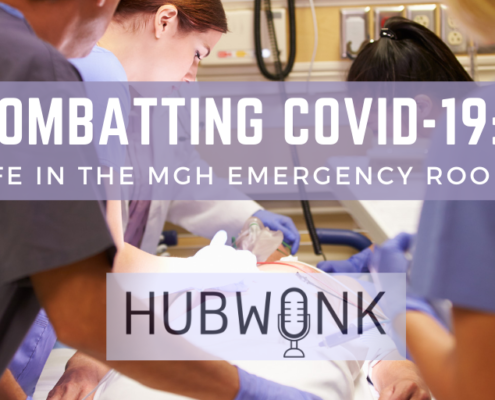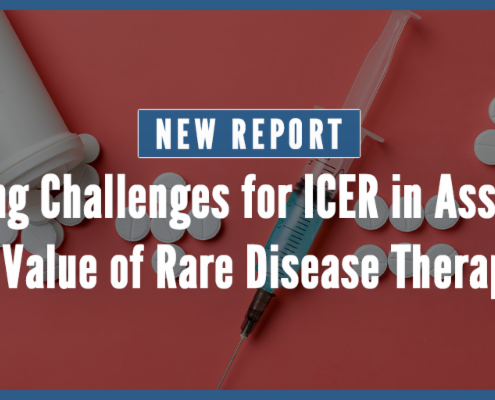A Federal Drug Discount Program for the Wealthy
This op-ed appeared in DC Journal online on March 20, 2023 (Smith and Popovian)
For various factors, a single federal drug program that accounts for tens of billions in annual spending has hit a tipping point in its evolution. The combination of legal disputes, a growing data repository and investigative reports have necessarily put the 340B Drug Pricing Program under the microscope. Combined with the fact that the policy lacks any necessary guardrails to ensure transparency and integrity for patients, 340B has spiraled out of control to the point that no policymaker can ignore the need to look closer.
Recently, a federal appeals court in Philadelphia admonished the Department of Health and Human Services for requiring drugmakers to provide discounted drugs to an unlimited number of pharmacies that contract with hospitals or clinics eligible for such federally required drug discounts. Under the so-called 340B Drug Pricing Program, drugmakers must give deep discounts to certain nonprofit hospitals and clinics.
When the program began in the early 1990s, those hospitals and clinics that did not have an in-house pharmacy could sign a contract with one outside pharmacy to distribute their discounted drugs. In 2010, despite no statutory provision concerning contract pharmacies, HHS permitted hospitals and clinics to contract with an unlimited number of outside pharmacies, and the 340B program exploded.
Of course, misaligned incentives are nothing new in the 340B program since eligible covered entities and pharmacies are allowed to purchase medicines at deep discounts from biopharmaceutical manufacturers and then resell those drugs at much higher prices to patients with private insurance or Medicare.
For example, a hospital can buy a $100,000 cancer drug for $25,000, thus making a profit of $75,000 on one prescription if they dispense that drug to a patient with private insurance coverage or Medicare — leading to profitability from a government program intended to help poor patients. Under the 340B program, there is no requirement that 340B drugs be dispensed to low-income or uninsured populations or that the profits from 340B discounts be used for charity care. In fact, there is not even a legal obstacle to using 340B profits for executive bonuses.
The warped incentives of the 340B program have even attracted the attention of the Rev. Al Sharpton, who recently wrote about the program. Sharpton stated, “Hospitals, in particular, that can buy the discount drugs are under no requirements to show how those savings are passed onto society’s most vulnerable patients.” Sharpton is not alone, as the program has increasingly come to the attention of researchers, lawmakers and national media, who are left scratching their heads when faced with the data.
To delve into the growth in 340B contract pharmacies, the Pioneer Institute has created a publicly available online tool where interested parties can explore firsthand the unprecedented increase in contract pharmacies within the program. The tool allows users to investigate the location and number of contract pharmacies associated with the covered entities in 340B. Users can see whether these pharmacies are in poor neighborhoods as they ought to be or in the more affluent communities that have enabled covered entities to turn a profit.
The arbitrage of drug discounts has tilted the 340B program away from serving the low-income populations that the program was originally intended to help. Utilizing Pioneer’s tool, we examined the location of 340B contract pharmacies in the nation’s 10 wealthiest and most impoverished ZIP codes. What we found is that there were six 340B contract pharmacies in the most affluent ZIP codes and none in the 10 poorest ZIP codes.
Pioneer found the same pattern in states across the country. For example, in California, where there are more than 3,000 contract pharmacies, there were seven pharmacies in the wealthiest ZIP codes and only one in the poorest ZIP codes. In most states we analyzed, there were more pharmacies in the rich than in low-income ZIP codes.
These findings confirm that in most cases, the 340B program has devolved from a program designed to help the poor into a program that generates profits for hospitals, clinics and some for-profit pharmacies by serving wealthier populations with good insurance. It’s just another example that confirms that contract pharmacies are abusing 340B to the detriment of people who need assistance the most.
William Smith, PhD, is Senior Fellow and Director of the Life Sciences Initiative at Pioneer Institute in Boston.
Robert Popovian is a senior visiting health policy fellow at Pioneer Institute.
Get Updates On Our Healthcare Research and Events!
Related Posts









